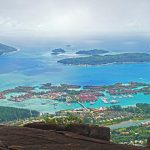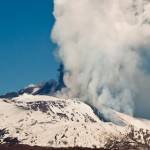Are you the adventurous type? Do you love visiting less popular places? Then Namibia is what you’re looking for. Located in South Africa, this country has the potential to offer you experiences that you’ve never had before.
This is because you can see a lot of things like, for instance, the Etosha wildlife, Sossusvlei’s mountainous red/orange dunes, and the Skeleton Coast. And these are only a few of the beautiful attractions you have the chance to visit.
Now, the big question comes into play: Is Namibia safe to visit? If you’re concerned about this, here are some Namibia safety trips.
Highest Risks You Expose Yourself to When Visiting Namibia
Overall Risks in Namibia: MEDIUM
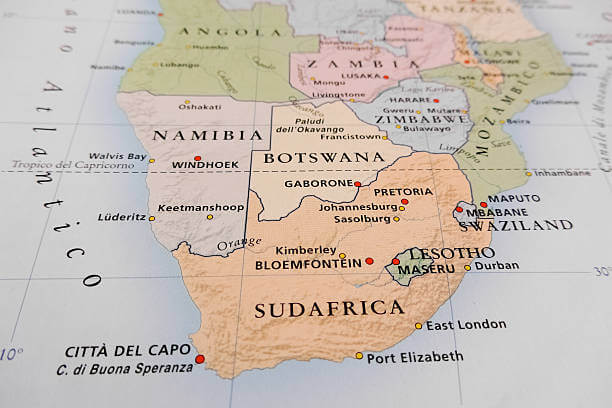
Namibia is relatively safe to visit. Most of the tourists had successful trips with no incidents. However, that doesn’t mean that you should exclude the possibility of something happening. You aren’t fully safe in your home country either, so you shouldn’t expect that to change as a tourist.
Violent street crime targeting foreign tourists is on the rise, especially in Windhoek. Street theft and muggings could happen, as well as pickpocketing in crowded areas.
Driving can be very chaotic in Namibia, especially on secondary roads. Moreover, taxi drivers can stop in the middle of the street to pick up people.
Political violence is nearly inexistent here. Although demonstrations can happen sometimes, they are peaceful.
Terrorism is quite low compared to other African countries, so it is not such a big concern. Still, that doesn’t mean an attack can’t occur. Anything is possible.
Wildlife Danger Risk: MEDIUM to HIGH
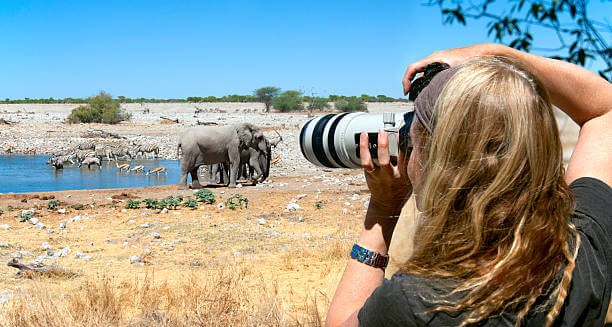
Do you like camping? Then probably that’s what you’d like to do in Namibia. Still, the question “How safe is Namibia for tourists who camp?” is in your head.
Whereas camping could be a great experience because of the stunning nature you can enjoy, there are certain things to consider. Wildlife can be a great danger if you don’t know how to avoid the risks. Namibia has a large variety of venomous scorpions and snakes to make your nightmares become reality.
You should consider closing your tent properly, so nothing can crawl inside while you sleep. Moreover, don’t leave backpacks or anything else open, because who knows what creature you’re going to bring back home.
Shoes should be sealed as well. Do you think only dogs are attracted to shoes? Well, that’s not true. Scorpions can easily use it as their new house.
If you want a great vacation, it’s better to avoid anything that has claws, fangs, and anything venomous.
Theft and Pickpocketing Risks in Namibia: MEDIUM
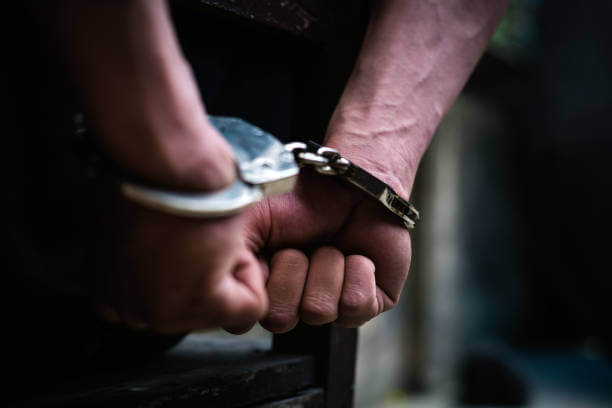
If you’re wondering “How safe is Namibia for tourists regarding theft?”, you probably expect it to happen, especially in big cities if you’re not careful.
Windhoek, for instance, is one dangerous place where people should be vigilant, regardless of whether they’re locals or tourists. Still, there is a high risk for foreigners, as they are vulnerable because they are away from home. It doesn’t have to happen at night – it’s easy for wrong-doers to attack in broad daylight.
Busy intersections in Windhoek are also popular spots where gangs take action. They can gain entry to vehicles and attempt to mug people. Moreover, taxis from the street can be involved in theft incidents as well.
Town centers are places where pickpocketers like to act. If it’s obvious you’re a tourist, you’re particularly at risk.
- How to avoid pickpocketing and theft in Namibia?
Whether you’re in Windhoek or not, be wary of your surroundings and make sure you’re at the hotel before dark. If possible, don’t go alone anywhere. Being with someone can increase safety while being alone makes you an easier target.
During heavy traffic, keep your windows shut and your car doors locked. Additionally, don’t keep valuables anywhere visible. This may attract thieves. Be careful, and stay vigilant in service stations as well. Also, don’t leave your car unattended at any fuel stop.
Make sure you don’t hail taxis on the street. You should rather ask your tour operator or hotel to recommend a good taxi company. Keep your valuables like jewelry, phone and cash away from sight. You don’t want to be left without any of them, do you?
Scam Risk in Namibia: MEDIUM
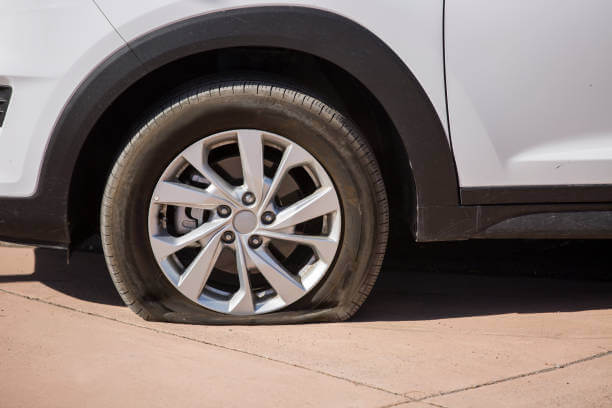
When it comes to scams, Namibia is relatively safe - as in there are no large or serious scams that are being conducted on the country's territory. However, this does not mean that you can't come across opportunists trying to make some profit out of your misfortune.
One of the most common scams reported throughout Namibia - especially in Khorixas, Palmwag, Kamanjab - is that of the punctures tires. Obviously, your tire may get punctured simply out of bad luck, a case in which you will be forced to head to the nearest shop/ station to either fix or replace your tire.
When you leave, thinking that your tire is fixed/ properly replaced, you will soon notice that another tire has got punctured. Naturally, it was one of those people that changed your tire that had also punctured the other one. If they don't manage to puncture your second tire, they will still have made a profit. How?
Well, you will most likely be overcharged for repairs or, in the case of a tire replacement, you may pay $60 more for a tire than you would in any other Namibian city. Other than these mischievous scams, there are no other tricks you should be worrying about.
- How to avoid getting scammed in Namibia?
In order to avoid getting scammed while in Namibia, you have to keep a close eye on your car, especially if you are in service. Moreover, make sure to check your insurance before driving here and see whether it covers punctured tires and their replacement, as some policies do not cover this.
It is also recommended that you check the local prices for tires and such so that you know that you're getting scammed when you are faced with a much higher price.
You should also always ask for the menu before ordering in a bar or restaurant, as owners tend to overcharge foreigners in most countries. As long as you stay alert, you should not be tricked by any scammer.
Kidnapping Risk in Namibia: LOW
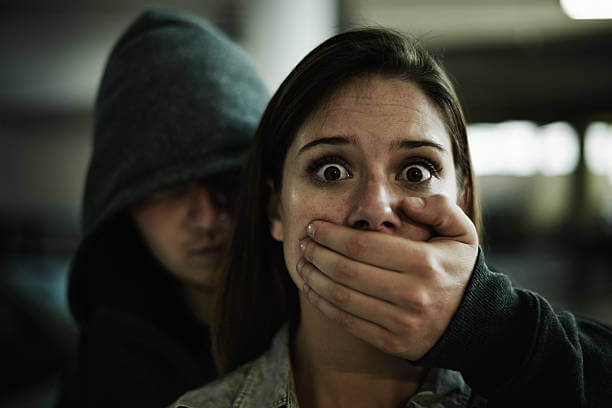
The kidnapping rate is very low in Namibia. So, if you’re asking “Is Namibia safe to visit?” when thinking about kidnapping, you should know that you’re safe.
There were very few cases of kidnappings in the past, and the ones reported were not politically motivated. They took place because of criminal activities. No major kidnappings involved foreign tourists, so this sounds good so far, doesn’t it?
- How to avoid getting kidnapped in Namibia?
However, don’t take it for granted. Just because Namibia is generally safe from villains who want to keep you as a hostage, that doesn’t mean it can’t happen. You should definitely avoid walking alone, especially at night and in quiet areas. Also, don’t trust anyone and be careful with your surroundings.
Terrorism Risk in Namibia: LOW
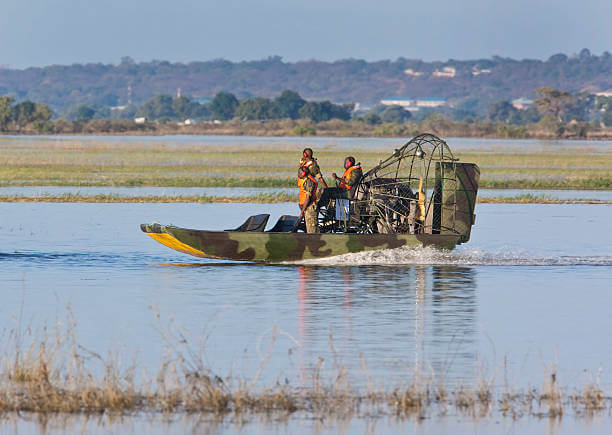
You’d be very pleased to know that Namibia is safe from terrorism compared to its fellow African countries. There have been no reports or terrorist attacks lately, and there is no known terrorist group that activates in Namibia.
So, basically, you shouldn’t worry about an attack while in a crowded area or at an event. Also, there are no reports of the presence of any international terrorist group in Namibia. Therefore, this place is pretty safe from that point of view.
However, that doesn’t mean you should stop being vigilant – there are people with evil intentions where you least expect.
- How to avoid terrorism in Namibia?
Even though terrorism is not quite a real risk in Namibia, you still have to know how to protect yourself in case something goes wrong. In this respect, it is recommended that you are aware of your surroundings, particularly in public places that are very crowded, places of prayer, official buildings, markets, and shopping centers, as these locations are usually targeted by terrorists.
If you notice anything suspicious, it is better to leave the area and maybe alert the authorities - referring here to unattended bags, packages, and such.
Risks for Women Traveling Alone in Namibia: LOW
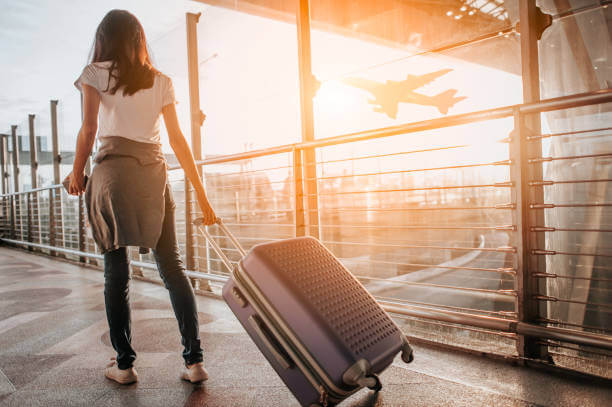
If you were continuously asking “Is Namibia safe for solo women travelers?”, you’re in for a surprise: you are safe as a solo female traveler.
Yes, it may be a surprise, but the country is very friendly to its tourists. It is safer for women compared to many other countries.
Still, that doesn’t mean you have to proudly expose your valuables. They could actually be bait for criminals. Make sure you dress modestly and your cash, jewelry, and anything that could draw attention is hidden. Additionally, don’t go to bars alone – men might take it as an invitation.
Basically, most people go to Namibia for the wildlife. Therefore, the wildlife itself poses the biggest danger, especially if you’re camping. Snakes, scorpions, and even ostriches are something you can run into.
- How to avoid crime as a solo woman traveler in Namibia?
If you’re out of town and going to the desert, make sure you have enough water. It’s very hot, and you can dehydrate very easily. Moreover, you should cover-up. Although this sounds like the worst thing to do during heat, the sun can burn your skin. Sunscreen may not always work, depending on your skin fragility.
You should also be careful in public transportation. You already know that buses have special places for storing the bags. It doesn’t mean that someone will steal your bag, but you should still ensure you don’t have anything valuable in there. Who knows what could happen?
Rape Risk in Namibia: LOW
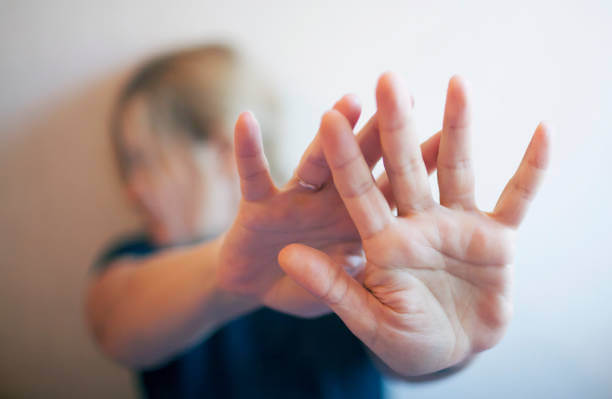
There are no recent reports of such incidents in Namibia. Moreover, online searches round-up no results referring to any cases of rape or sexual violence. Just like in the case of women traveling alone, the only things you should be worrying about are the petty thieves and the wild animals. Other than that, you are quite safe while traveling through this country.
Naturally, this does not mean that you can let your guard down and walk carelessly - you still have to take at least some basic safety measures when it comes to protecting yourself from criminals and such.
- How to avoid getting raped in Namibia?
In order to avoid being raped or harassed while traveling through Namibia, it is recommended that you are aware of the local laws and customs, as you don't want to upset any locals - while foreigners may be frowned upon in some foreign countries, such thing can be easily avoided by trying to draw as little attention to you as possible.
Naturally, you should approach a decent dress code and avoid displaying any valuables. Any attempt of robbery can turn into much more, depending on the aggressor's intentions.
Risks for People Traveling with Children in Namibia: LOW to MEDIUM
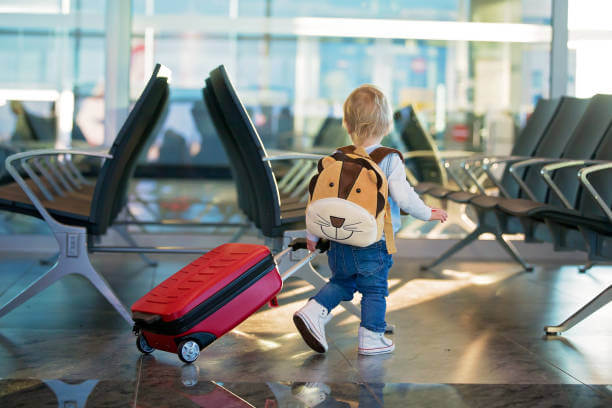
As you may have noticed so far, the two things you have to be worried about are petty thieves and the Namibian wildlife. When it comes to children, thieves will most likely have no intention of pickpocketing their candy-filled pockets. Therefore, wildlife is what you have to pay attention to when traveling with your children to Namibia.
While traveling through the country, it is recommended that you are accompanied by a tour guide and by more than just one fellow traveler. Keep in mind that you'll have to always keep an eye on your children so that you are sure that they don't go too far away from you and don't get into any trouble.
- How to avoid unwanted scenarios?
In order to avoid any unwanted scenarios, it's important that you or someone else - either a friend or relative traveling with you - keep an eye on the little ones at all times. They should not be left out of sight and let walk around by themselves as they can easily get in danger.
You should also come prepared with a first-aid kit containing everything that your children might need, from headache pills to tummy-ache pills, as well as band-aids and certain medications.
Clearly, you should not be all alone, as an adult, when traveling with your children, no matter the foreign country you chose as your destination. You must have someone else able to take care of them at all times.
Natural Disaster Risks in Namibia: MEDIUM
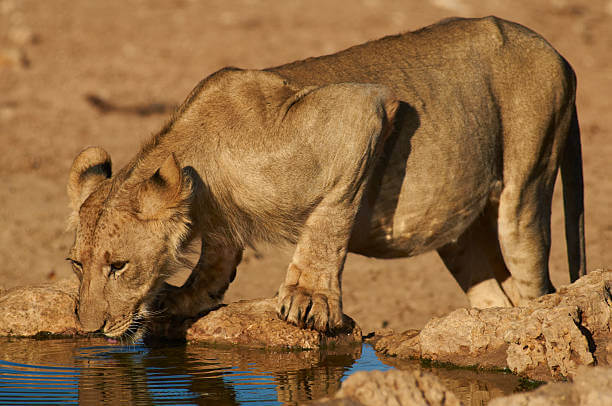
Drought and flood are the two natural disasters that are quite frequent in Namibia. Drought comes with a frequency of 31.6%, while flood with 68.4%. Usually, floods are responsible for most of the deaths, whereas drought is for most of the economic issues the country has to face.
In this respect, it is recommended that you check the local news and weather report every time before leaving your accommodation. You should also have a constant supply of bottled water or at least know from where you could buy it in case of need.
When planning any long-distance trip, take drought into account, as it may affect the country's water supply. Do not engage in long-distance trips without enough supply of bottled water on board.
Transportation Risks in Namibia: MEDIUM
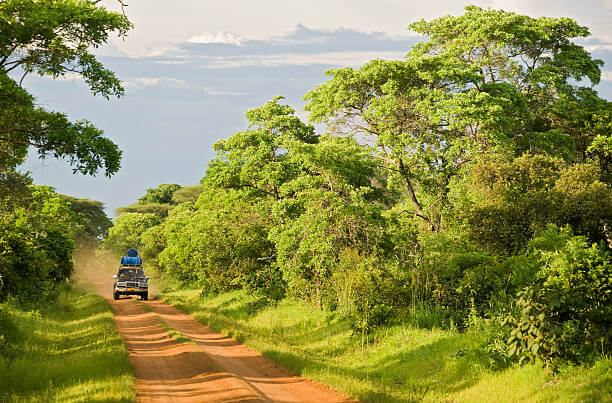
“Is Namibia safe to visit when it comes to driving?” you may ask. Well, you’re about to find out.
Driving can be a real challenge, especially if you’re not accustomed to the driving laws and style in Namibia. There are frequent traffic fatalities among foreign visitors. Secondary streets are also at higher risk of accidents compared to main ones, particularly during the rainy seasons.
If you’re in a non-urban area, make sure you’re not driving during the night. There may be animals crossing the roads, and it’s difficult to notice them. Moreover, if you plan to drive outside of Windhoek, you should arrive at your destination before dark.
Make sure you’re aware of the driving laws, and you drive carefully. If you decide to drive and not take taxis, it may be totally different than driving in your own country. This is why it’s essential to be vigilant because you want to avoid accidents at all costs.
Night-Clubs, Pubs, and Bar Risks in Namibia: MEDIUM
Given the fact that most thefts in Namibia occur in traffic, as well as in taxis, you are more at risk when going to or returning from a nightclub, pub, or bar. There are little to no incidents reported as taking place within such locations, and most of those reported refer to mere club fights and disputes between locals - foreigners are not usually targeted.
First of all, we recommend you rely only on reputable taxi companies as your choice of transportation. There have been more than enough cases of foreigners being mugged while in a taxi, especially in the busy intersections - gangs of criminals are known to force their way into vehicles, even during the day.
Other than that, you should always know how much you can drink without getting drunk and stop when that time comes. The last thing you want is to be drunk in a foreign country - if you are alone, this situation is going to get much worse for you, as you may encounter thieves when leaving a night-club, pub, or bar, which will take advantage of the fact that you have no idea what's going on around you.
Stay safe by reducing your usual alcohol intake, traveling with company, and politely refusing any stranger offering you a drink. Even if there are no reports of spiked drinks being used in Namibia, it is always better to be cautious.
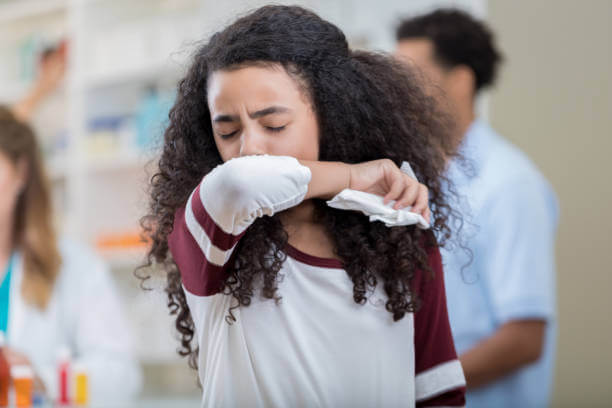
Health Risks in Namibia
Windhoek's medical facilities are generally good, able to offer most types of treatment to anyone. If you, however, choose to get treated in a private hospital - in case of an emergency or such -, be aware of the fact that these hospitals usually ask for proof of payment before they start treating you, even if you have fully comprehensive travel insurance.
In some cases, they may even ask for the payment of the treatment.
When it comes to travel insurance policies, some of them are not recognized in some hospitals in Namibia. This is why you should check with your insurance provider before the trip and make sure that you will be covered in the case of an accident.
In terms of health risks, cholera is quite common in Namibia - cases have been reported in Oshana, Omusati, Khomas, and Ohangwena Regions, after an initial outbreak in the Kunene Region. There have also been some cases in the capital city, Windhoek.
As mentioned earlier in our article, you should have a supply of drinkable water with you at all times. This is not only because of the occasional droughts but also because of the country's hot and dry climate, which can cause dehydration or skin problems.
As always, we strongly recommend you to travel with proper travel health insurance and with enough funds to cover the costs of any treatment or medicine that you might have to buy or be subject to. In case of an emergency, dial 10111 or 211111 - Windhoek only - and ask for an ambulance.
List of Vaccines You Need in Namibia
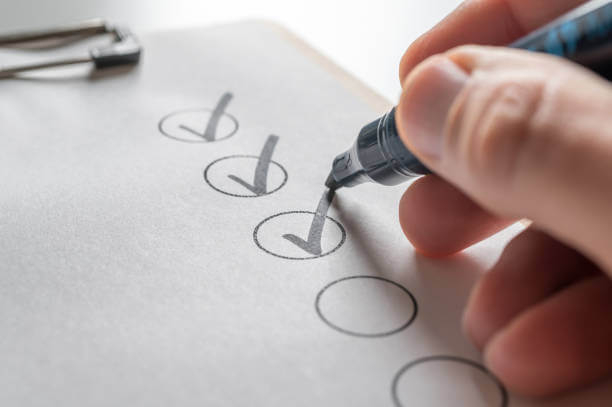
If you don’t want to become sick during your trip, check-in with your doctor beforehand to find out if you need vaccinations. In Namibia, there could be mosquito-borne diseases. So, because your trip shouldn’t be ruined by a mosquito, you need to be prepared.
Here are some vaccines you may need before your long-awaited Namibia trip:
- Typhoid
- Hepatitis A
- Hepatitis B
- Yellow Fever
- Rabies
- Malaria
Most Dangerous Areas in Namibia
- The Sperrgebiet - also known as the Forbidden Zone, this is a prohibited diamond area. It begins south of the A4 Luderitz-Keetmanshoop road and continues to west of Aus. This area is usually equipped, so to say, with well-armed patrols.
- Walvis Bay, Swakopmund, Windhoek, Grootfontein, Tsumeb - these areas are known to have problems with muggings and petty theft.
Concluding Remarks: Is Namibia Safe to Visit?
If you were looking for Namibia safety travel tips, then hopefully this Namibia safety guide provided you with enough information. This country is amazing and you won’t regret visiting it, considering it has stunning wildlife and you could relax.
Although a generally safe country, you should take certain measures to avoid unwanted incidents. Stay vigilant, don’t walk alone after dark or in quiet areas, and don’t draw too much attention by exposing your valuables.
Also, do everything that’s in your power to avoid bringing a scorpion home. Seal your shoes and backpack – your life can be great without a scorpion as a pet.

